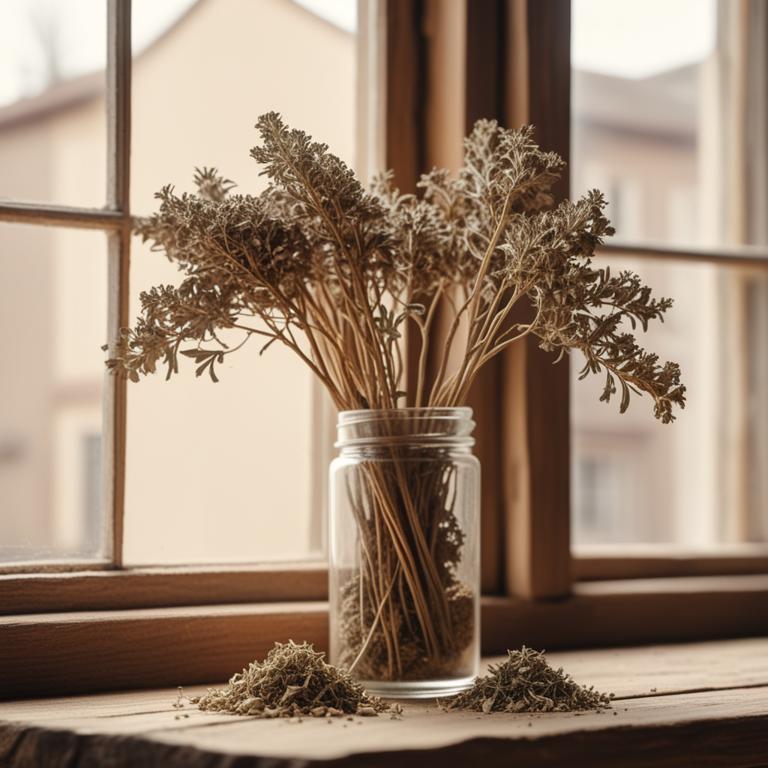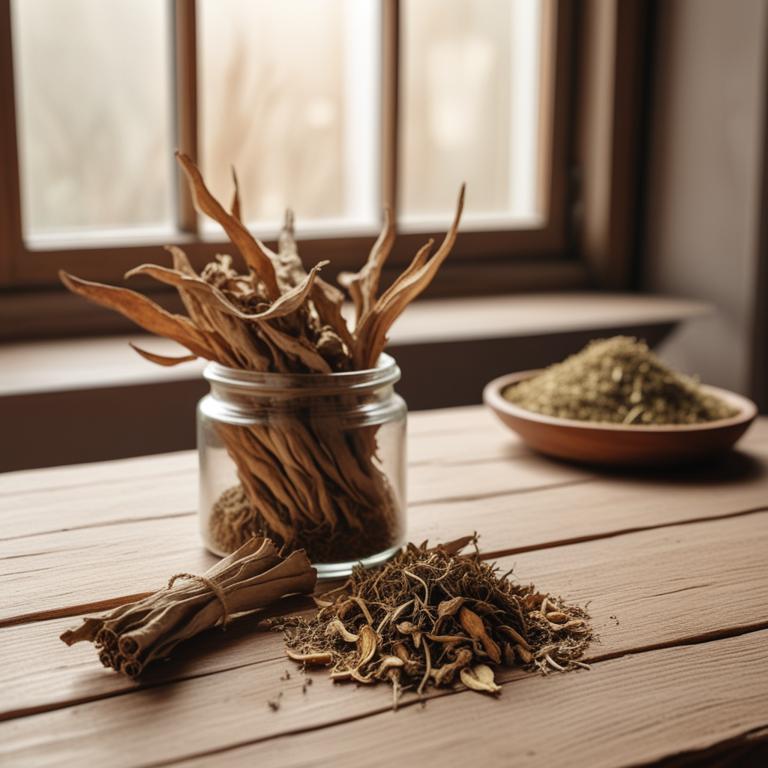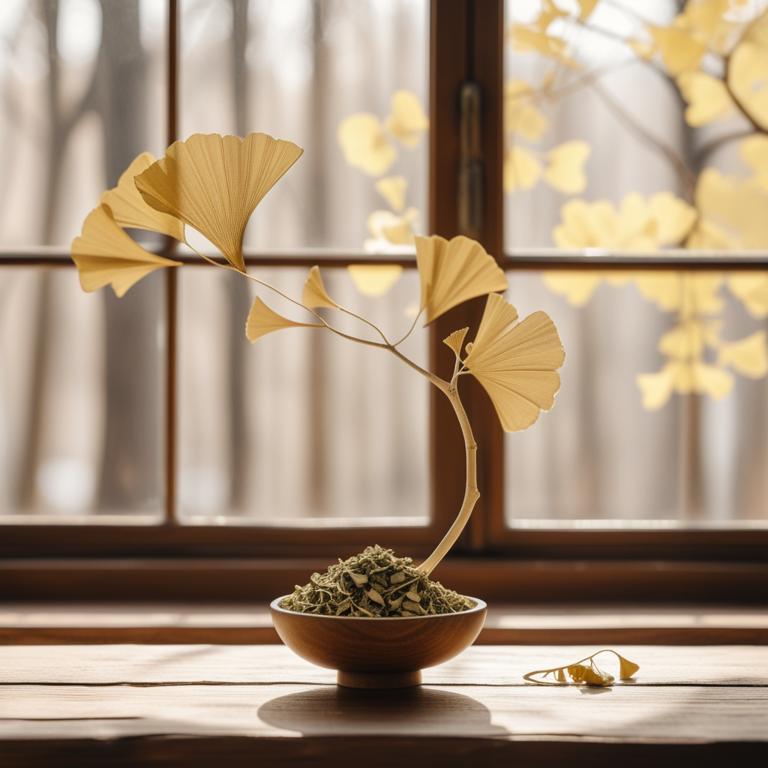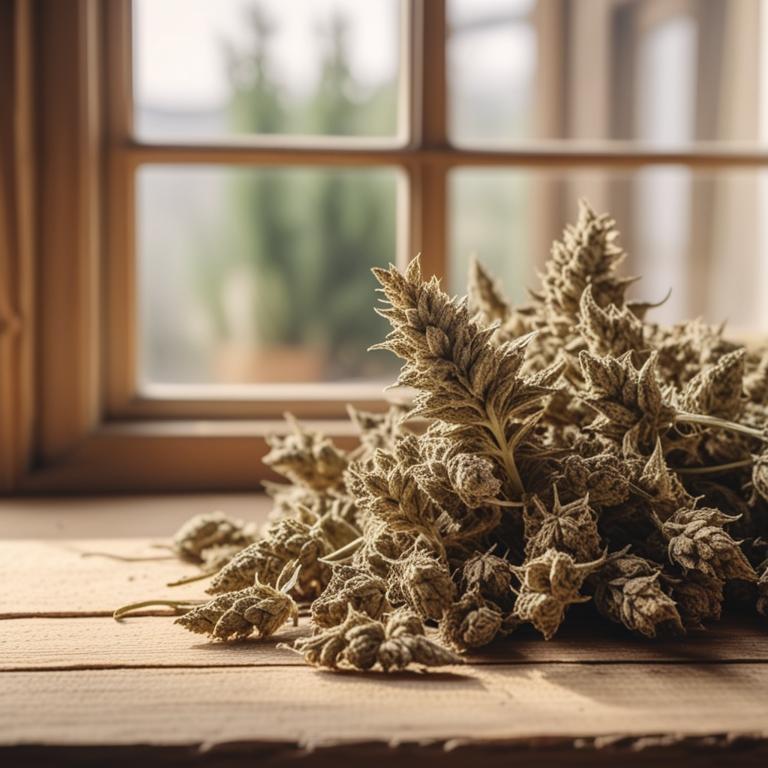Updated: Dec 1, 2024
Vaginitis: Understanding the Causes and Herbal Remedies
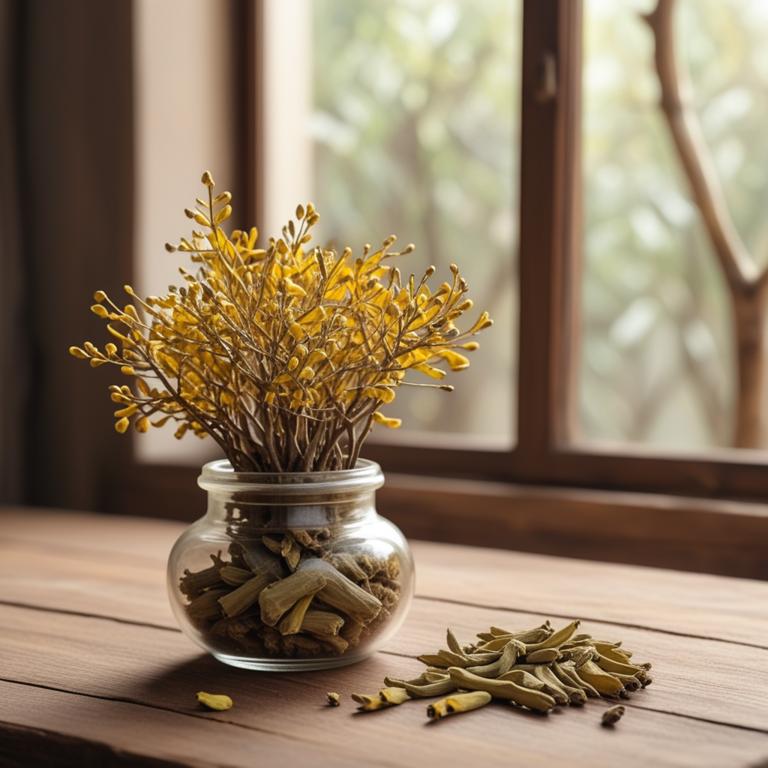
Vaginitis is an uncomfortable and frustrating condition that affects many women.
It's a vaginal infection that causes itching, burning, and abnormal discharge, making everyday activities like sex, exercise, and even just sitting a challenge. But what causes vaginitis?. Typically, it's due to an imbalance of bacteria in the vagina, often triggered by hormonal changes, antibiotics, or poor hygiene. Fortunately, nature has some healing powers to offer.
Herbs like tea tree oil, which has antimicrobial properties, and sage, which has anti-inflammatory effects, can help soothe and heal the vagina. Berberine-rich herbs like goldenseal and Oregon grape root also have antibacterial properties that can combat the underlying infection. To use these herbs, try drinking herbal teas like chamomile or red raspberry leaf, which can help soothe and balance the vagina. You can also use tea tree oil as a vaginal suppository or add it to a warm bath for a relaxing and healing soak.
Some women also find relief with topical creams or ointments made from herbs like calendula or aloe vera, which can help calm and protect the skin.
Table of Contents
What causes vaginitis to occur?
The main causes of vaginitis are various types of infections that affect the vagina.
Bacterial vaginitis, also known as bacterial vag, is caused by an overgrowth of the bacteria that normally live in the vagina. This can happen when good bacteria are killed off by antibiotics or other medications. Fungal vaginitis, or yeast infection, occurs when a fungus called Candida overgrows in the vagina.
This can be triggered by hormonal changes, diabetes, or taking antibiotics. Viral vaginitis is less common, but it can be caused by viruses such as herpes simplex, which can be transmitted through skin-to-skin contact. Trichomonas vaginitis is caused by a parasite called Trichomonas vaginalis, which is usually spread through sex with an infected partner.
Chlamydia vaginitis, also known as chlamydia vulvovaginitis, is caused by the bacteria Chlamydia trachomatis, which can be transmitted through sex with an infected partner.
What are the advantages of using herbs for the treatment of vaginitis?
Using herbs for vaginitis can be a great alternative to traditional treatments.
One of the main benefits is that they are natural and gentle on the body. Many herbs have anti-inflammatory properties, which can help reduce swelling and discomfort in the vagina. They can also help balance the body's natural pH levels, preventing the growth of bacteria and yeast that can cause vaginitis.
Some herbs have antibacterial and antifungal properties, which can help combat infections. They can also help soothe and calm the vaginal area, reducing itching and burning sensations. Additionally, herbs can be used to help restore the natural balance of the vagina's microbial ecosystem, which can help prevent future occurrences of vaginitis.
Using herbs can also be a more comfortable and less invasive option compared to traditional treatments, which may involve antibiotics or other medications.
What are the main herbal remedies for vaginitis?
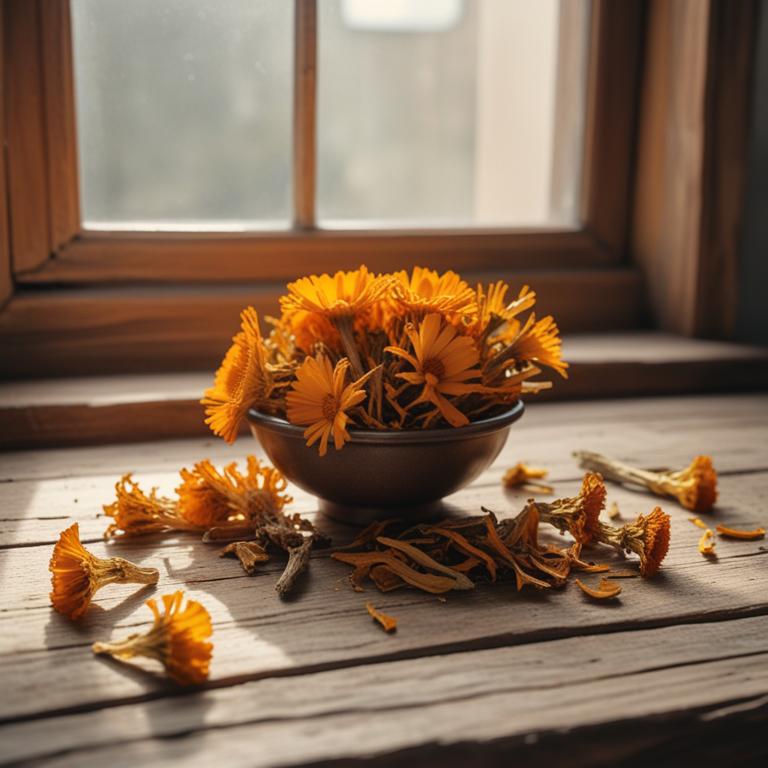
Herbs like Calendula officinalis and Aloe vera have anti-inflammatory properties that can help soothe and calm irritated vaginal tissues.
Calendula, in particular, can speed up the healing process by promoting the growth of new tissue. Echinacea purpurea, also known as coneflower, has been shown to boost the immune system, which can help fight off infections that cause vaginitis. The antiseptic properties of Lavandula angustifolia, or lavender, can help combat bacterial and fungal infections that can cause vaginitis.
Saponaria officinalis, also known as soapwort, has been traditionally used to treat vaginal infections due to its antimicrobial properties. When applied topically, these herbs can provide relief from the discomfort and pain associated with vaginitis. However, it's essential to note that while herbs can be beneficial, they should not replace medical treatment.
If you're experiencing symptoms of vaginitis, it's best to consult a healthcare professional for proper diagnosis and treatment.
What are the primary herbal preparations used to manage vaginitis?
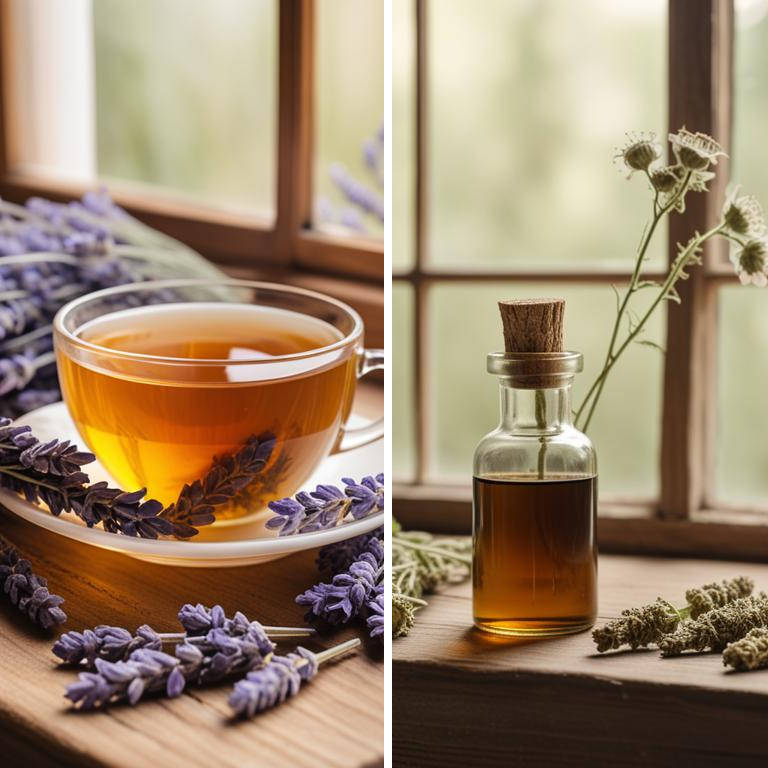
Herbal preparations can be a great help for vaginitis.
A decoction is a strong tea made by boiling herbs in water. Decoctions of herbs like goldenseal and uva ursi have antibacterial properties that can help fight off infections that cause vaginitis. Tea is another way to use herbs for vaginitis relief. Tea bags soaked in herbs like calendula and chamomile can be inserted into the vagina to soothe and calm the area. Tinctures are concentrated liquid extracts of herbs.
Tinctures of herbs like echinacea and sage can be applied directly to the affected area to help fight off infections and reduce inflammation. Salves are topical creams or ointments made from herbs. Salves of herbs like aloe vera and tea tree oil can be applied directly to the vagina to soothe and calm the area, and help fight off infections. An infusion is a weak tea made by steeping herbs in water. Infusions of herbs like peppermint and red clover can be used as a vaginal wash to help soothe and calm the area. Using herbal preparations for vaginitis can be a good option because they are often gentle on the body and have fewer side effects than prescription medications.
However, it's always best to talk to a doctor before trying any new treatment, especially if you're pregnant or breastfeeding.
Additional Resources:
What herbs should be avoided when suffering from vaginitis?
If you have vaginitis, it's best to steer clear of certain herbs that can make things worse.
Glycyrrhiza glabra, also known as licorice root, can cause hormonal imbalances that can lead to yeast infections, which are common in vaginitis. This can cause your symptoms to flare up or become more severe. Silybum marianum, or milk thistle, is not typically used to treat vaginitis, but it can interact with other medications you might be taking for the condition.
Ginkgo biloba is not directly related to vaginitis, but it can thin your blood, which is a concern if you're already experiencing bleeding or discharge due to the infection. Cassia auriculata, or golden shower tree, has been linked to estrogen imbalances, which can worsen vaginitis symptoms. Panax ginseng, or Asian ginseng, can also affect hormone levels and blood sugar control, making it a potential issue for people with vaginitis. It's essential to talk to your doctor or healthcare provider before using any herbal remedies, especially if you have an underlying medical condition like vaginitis.
They can help you make informed decisions about which herbs are safe for you to use.
FAQ
Are there any specific herbs that can prevent vaginitis?
Some herbs, like tea tree oil and echinacea, have antifungal properties that may help prevent vaginitis.
Tea tree oil can be applied topically to soothe the vaginal area, while echinacea can be taken internally to boost the immune system and reduce inflammation.
These herbs may provide relief from vaginitis symptoms.
Is it safe to use herbal remedies for vaginitis during pregnancy?
When it comes to using herbal remedies for vaginitis during pregnancy, it's best to be cautious.
Some herbs can affect the baby's growth or cause complications. For example, raspberry leaf and red clover might be safe in small amounts, but more research is needed to confirm their safety.
It's also essential to check the ingredients and follow instructions carefully.
Are there any herbs that can reduce the frequency of vaginitis?
Some women find relief from vaginitis symptoms by drinking tea made from the herb chamomile.
Another herb, goldenseal, has anti-inflammatory properties that may help soothe irritated tissues in the vagina.
These herbs are sometimes used to reduce the frequency and severity of vaginitis episodes.
Related Articles
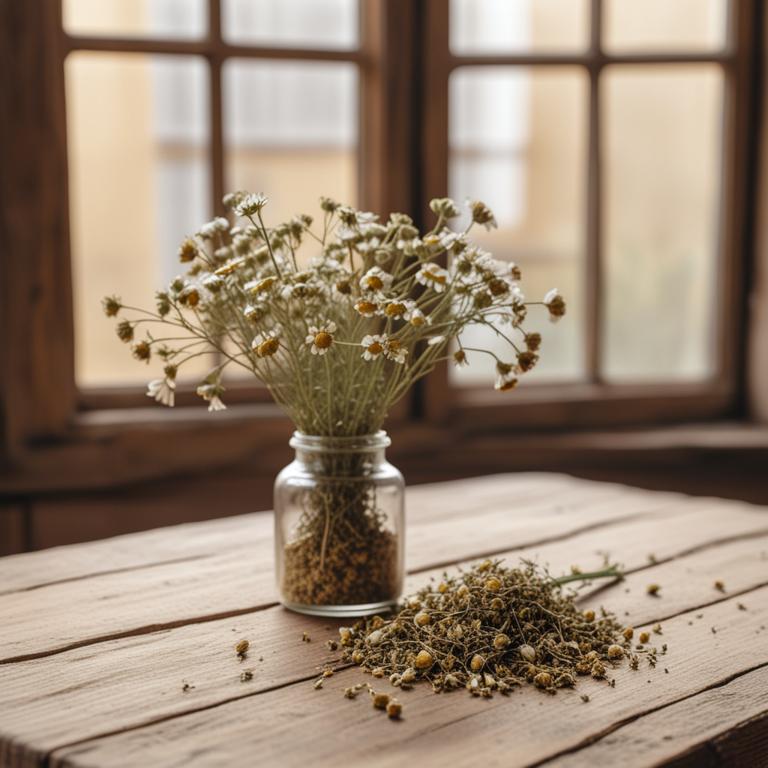
Nipple Pain During Breastfeeding: Causes, Herbal Preparations, and Natural Relief

Amenorrhea Causes, Symptoms, and Treatment with Medicinal Herbs

Understanding Endometriosis Pain: Exploring Causes and Herbal Remedies
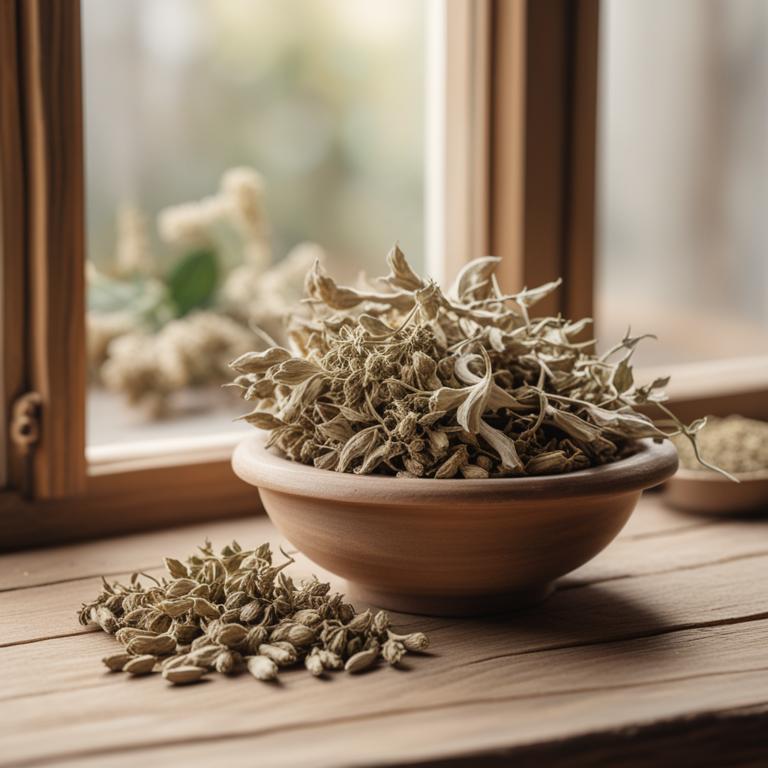
Overcoming Erectile Dysfunction with Medicinal Herbs and Natural Preparations
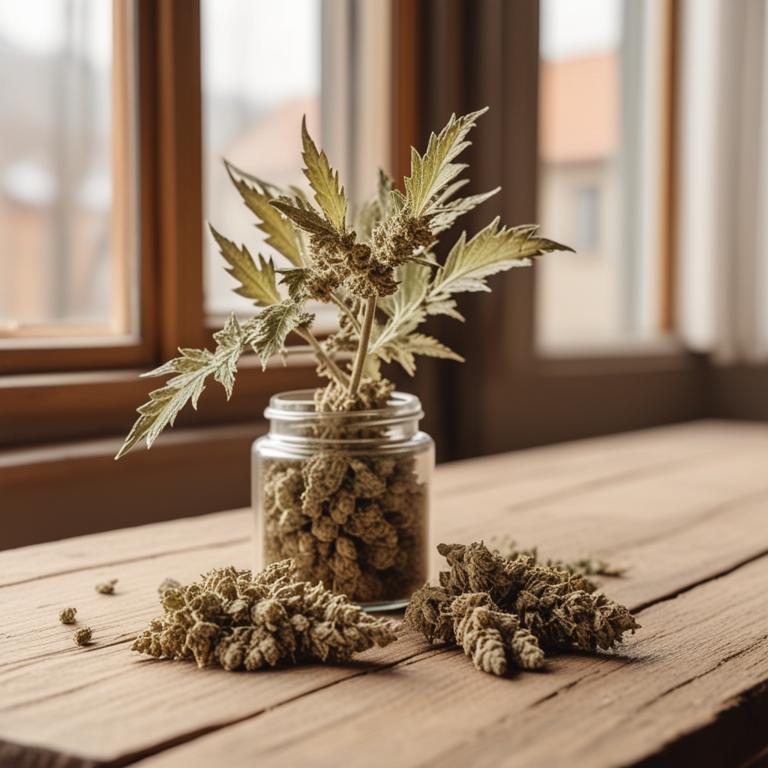
Understanding Uterine Fibroids: Causes, Medicinal Herbs, and Alternative Treatments
